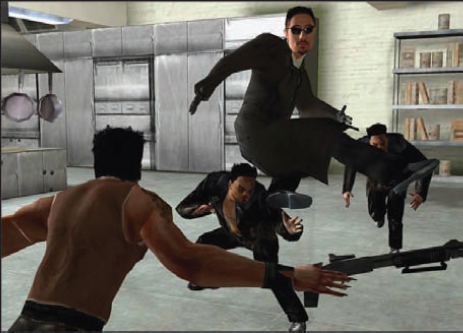ANALYZING UNSUCCESSFUL APPS
You've now seen how to analyze and find successful apps, but what are the benefits of looking at the unsuccessful ones, and how do you go about finding them?
Let's begin by agreeing on a common definition of “unsuccessful” by examining what unsuccessful isn't. Just as a “successful” app does not mean it is a good app, an unsuccessful app does not mean it is a bad app. If you do a little digging, you can find many great apps with stellar reviews that, for one reason or another (related to promotion and marketing), didn't sell. On the flip side, you can find many successful apps and games with merely mediocre reviews.
In the game industry, a famous example of this was the PC-licensed title “Enter the Matrix” in 2003, which capitalized on the incredibly well-known movie, The Matrix (Figure 3-11). Many millions were spent on its marketing, and it did remarkably well in retail its first month, despite harsh critical and player reviews. Though it was solid in the short term and made the developers a lot of money before word of mouth could spread, times are different now.

FIGURE 3-11: “Enter the Matrix,” a mediocre game at best by many measures, sold well largely because of initial marketing hype
A highly marketed retail game, even if it turns out mediocre or worse, may still be able to get away with the hype-to-sell approach simply because of the cost of entry. ...
Get The Art of the App Store: The Business of Apple Development now with the O’Reilly learning platform.
O’Reilly members experience books, live events, courses curated by job role, and more from O’Reilly and nearly 200 top publishers.

